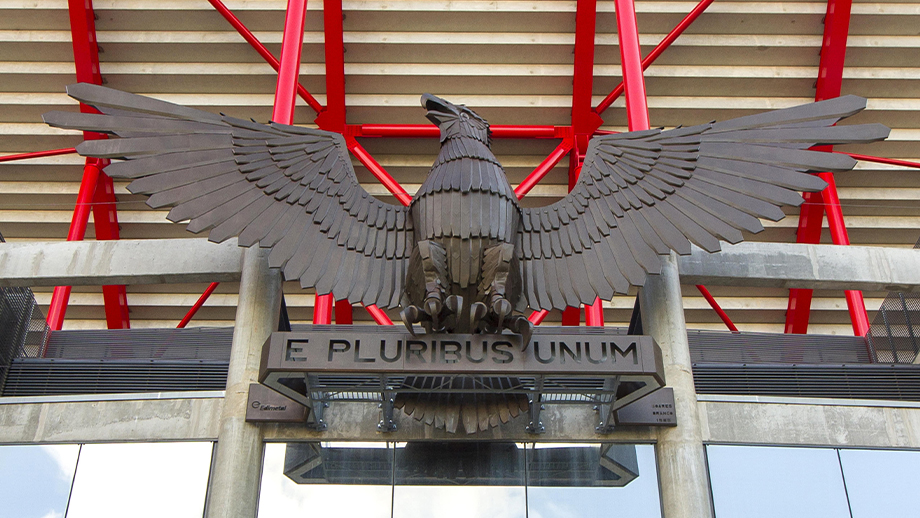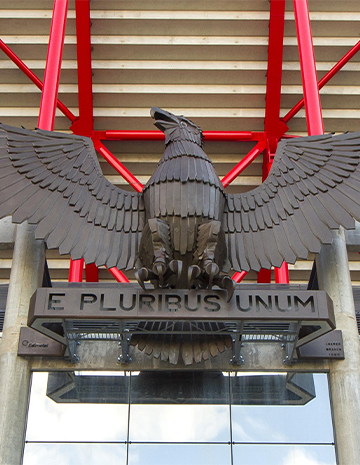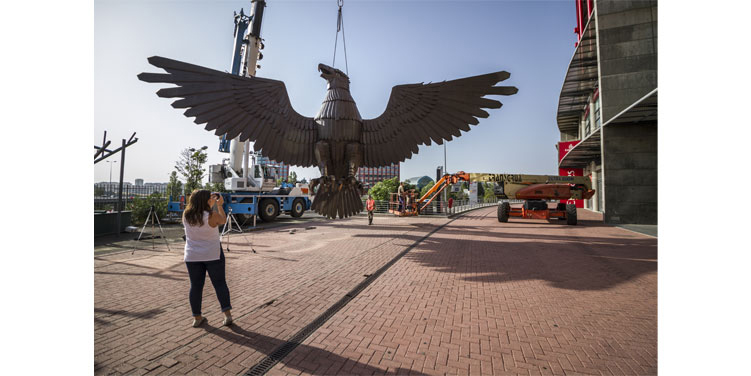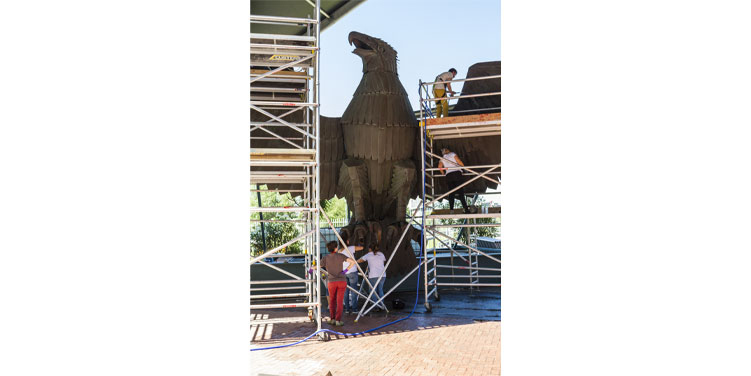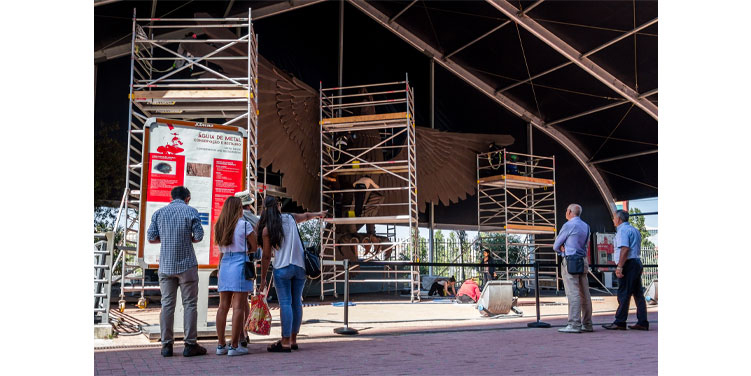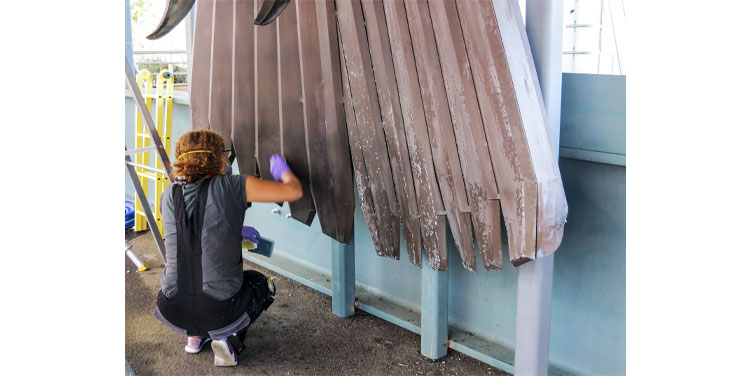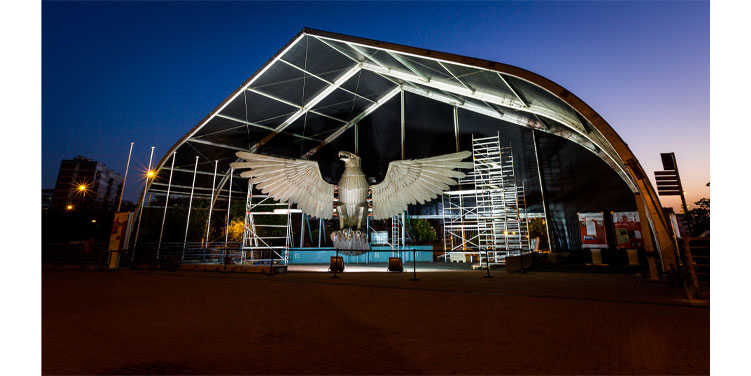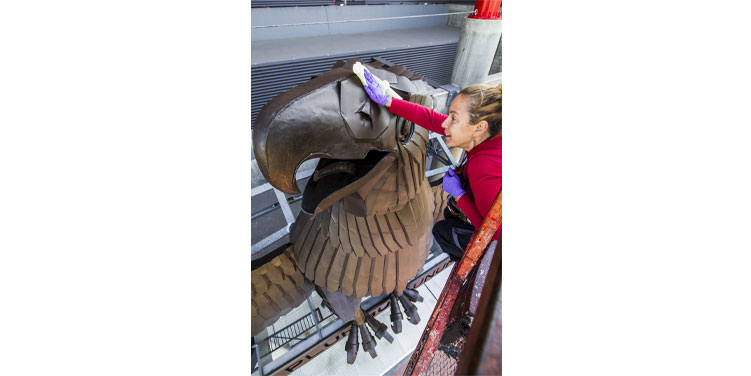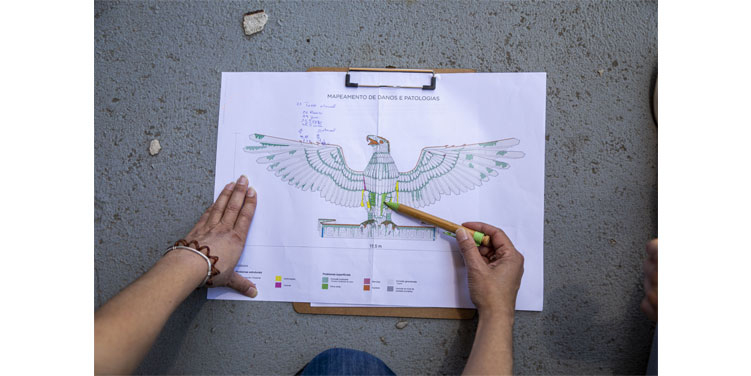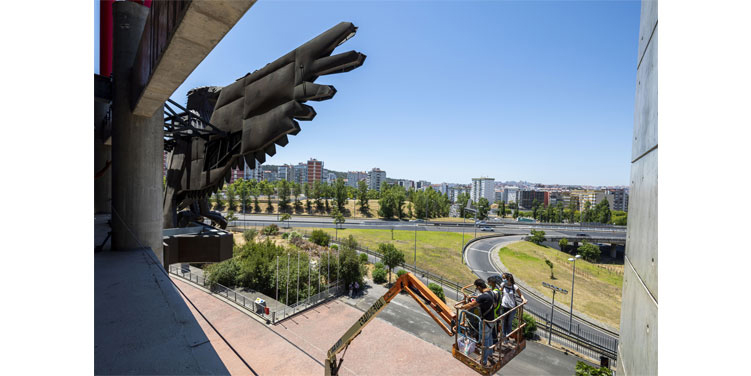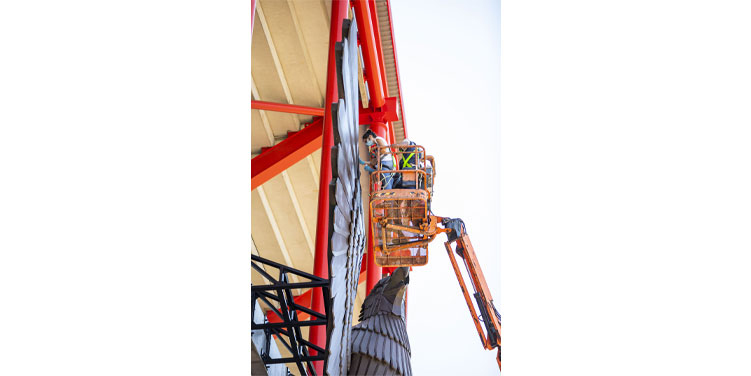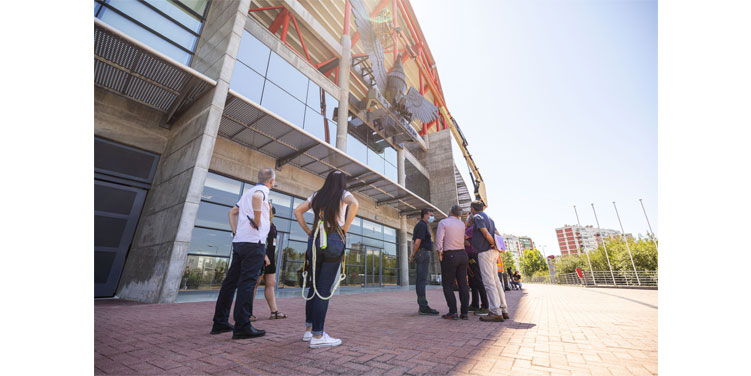29th October 2021
The Metal Eagle on the Estádio da Luz frontage, September 2016
SLB Collection
In 2016, the Metal Eagle sculpture underwent a conservation and restoration work, returning to the frontage of
Estádio da Luz with a new look in September, after a two-month intervention. Five years later, we recall the
multidisciplinary project of this intervention and the work that has been developed to ensure the preservation
of the monumental sculpture. In addition to the symbolism associated with the Club, this work is the legacy of
one of the greatest Portuguese artists of the 20th century Domingos Soares Branco and is one of his most
remarkable sculptural creations.
Today, the imposing Eagle continues to inspire athletes and supporters, guiding them in the present and towards
a promising future!
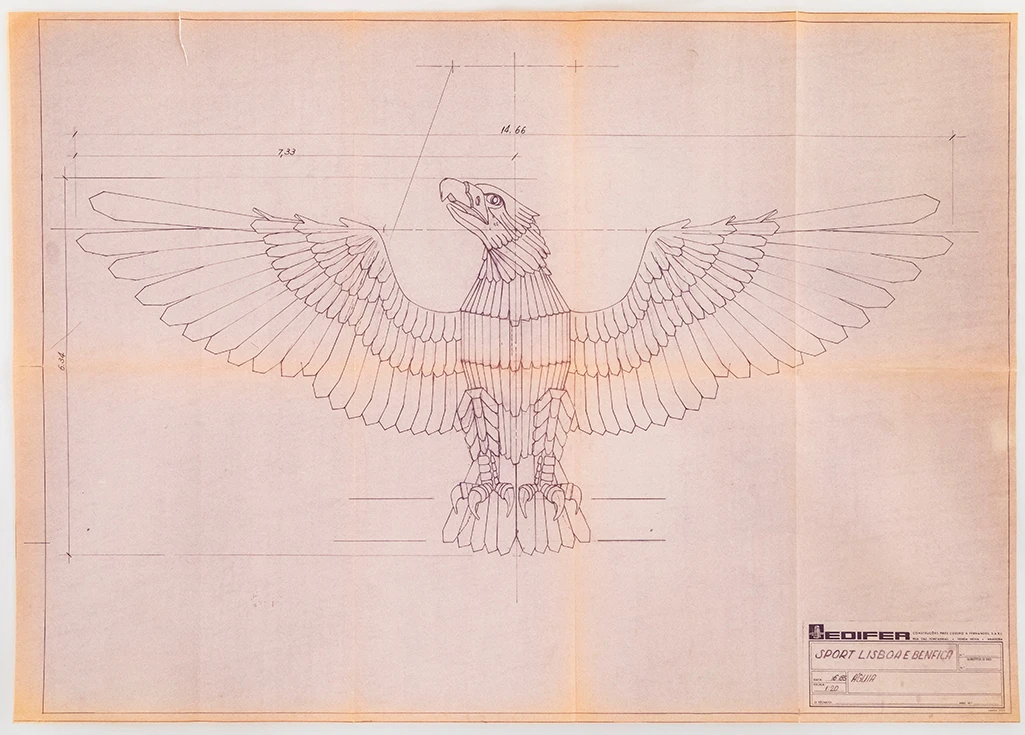
Technical drawing of the Metal Eagle sculpture, June 1985
Floriano Contreiras Fonds. SLB Collection
From concept to construction
On 21 September 1985, and after a year of construction works, the 3rd tier of the Estádio da Luz was finally
inaugurated, and an enormous copper and iron eagle was placed over the stadium’s new frontage.
Designed by the sculptor Domingos Soares Branco and built by Edimetal, the work took about three months to be
executed, a record time considering its dimensions and technical characteristics. More than 6,500 hours of work
were spent with 33 technicians dedicated to its construction, always under the watchful eye of the sculptor.
Made up of a structure of iron beams with 325 riveted copper plates, it formed a hollow volume with a span of 16
metres and a 7-metre height. The elements of the body were built separately, and, in parts, the sculpture made
its way to the Estádio da Luz in the early days of September. At dawn, the various components were lifted and
assembled on the structure previously fixed to the frontage, 20 metres above the ground.
In 36 years of existence, the sculpture has only been removed from the frontage on three occasions: the first,
in March 1991, during the modernisation of the facilities; in 2001, for the demolition of the old Stadium; and
finally, in 2016, when it underwent a conservation and restoration intervention.
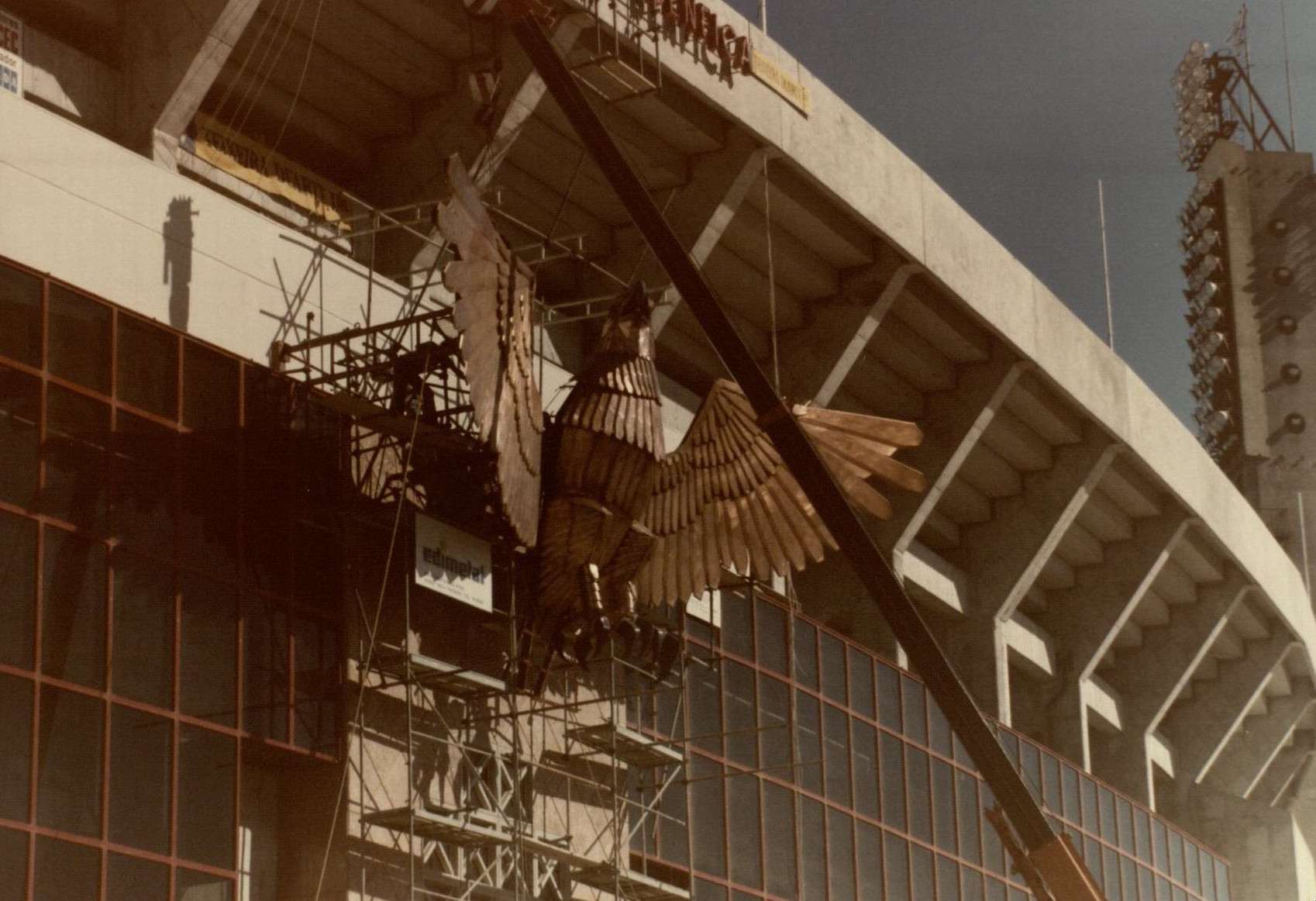
Installation on the Estádio da Luz main frontage, September 1985
Domingos Soares Branco personal collection
Conservation challenge
In the conservation of outdoor sculptures, a category in which the Metal Eagle is included, there are parameters
extremely difficult to control, which can trigger processes of degradation, compromising its preservation. The
factors that most contribute to this deterioration are the climatic conditions, such as variations in
temperature and humidity, combined with the proximity to the sea and the dust and dirt produced by atmospheric
pollution, a critical factor for this sculpture located near the 2nd Circular Road and Lusíada Avenue. These
agents can alter the properties of the metal, enhancing chemical alteration processes and unwanted effects such
as corrosion, colour change, and surface deposits.
Due to its considerable size, technical characteristics, and difficulty of access – more than 20 metres above
the ground – the conservation of the Metal Eagle is a permanent challenge. Apart from structural issues, the
surface stability and aesthetic integrity assume in this work a greater significance given its symbolic meaning.
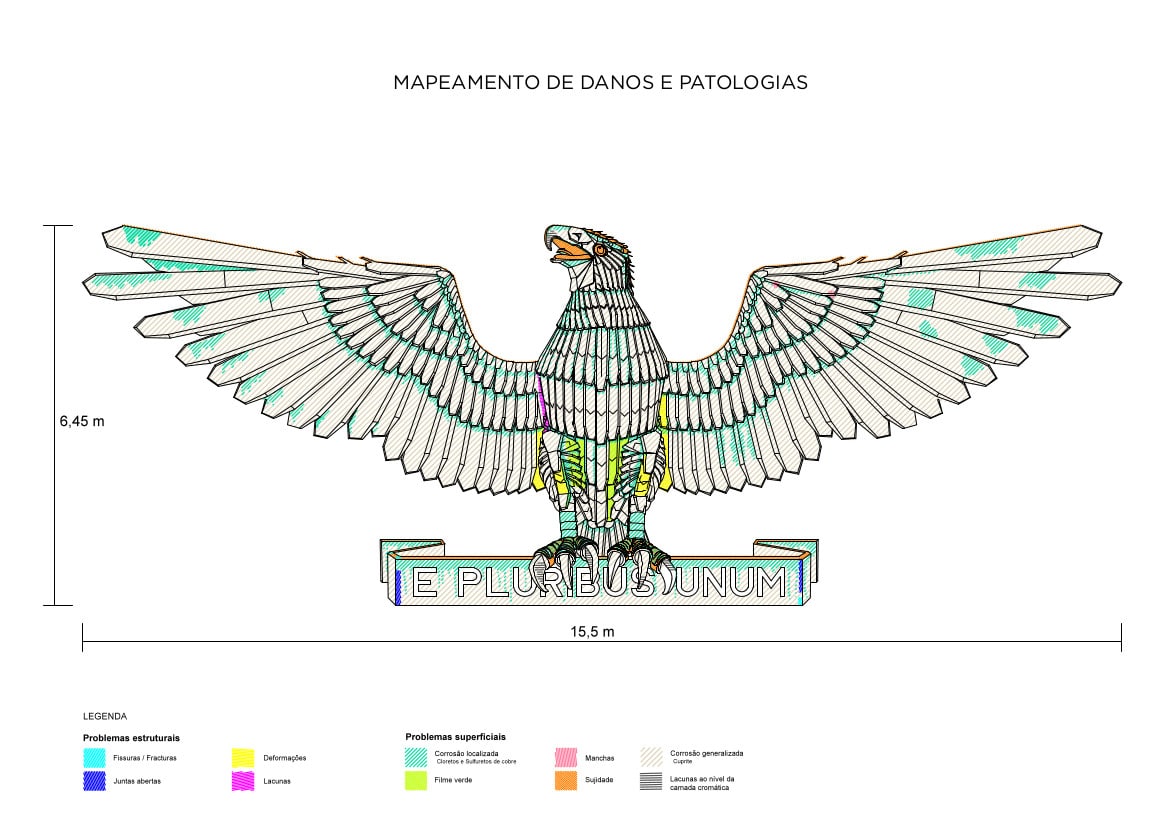
Pathology mapping, June 2016
SLB Collection
The conservation and restoration intervention
Taking these assumptions into account, in 2016, a conservation and restoration intervention was carried out, the
largest ever developed in the facilities of the Estádio da Luz. Through the establishment of strategic
partnerships, it was possible to bring together a multidisciplinary team with over 60 elements, ensuring the
technical and scientific knowledge required for the intervention, from the following institutions: Sport Lisboa
e Benfica Storage, Conservation and Restoration Department, Nova School of Science and Technology, Institute of
Welding and Quality, Duartesfer, and Laborspirit. The work demanded intricate logistics, which involved lowering
a 3-ton volume from a height of 20 metres and fixing it to a provisional metallic structure that allowed the
works to be done at ground level, while ensuring the conditions of access and safety to carry out the
intervention.
The process took 8 weeks to be carried out and its aim was to guarantee the physical and chemical stability of
the surface and structure of the sculpture. The 325 slabs that make up the Metal Eagle were intervened on and
all structural connections were reviewed, in order to guarantee the good conservation of this monumental work of
art.
The removal of the sculpture from the frontage to carry out the intervention, June 2016
SLB Collection
Monitoring to preserve
Since then, monitoring actions have taken place biannually, whose objective is to assess the current state of
conservation of the sculpture. The most recent monitoring took place in August 2021 and all changes were
recorded, comparing them with previous ones. The effectiveness, durability and performance of the materials used
in the previous intervention were checked and a detailed photographic survey and mapping of all the pathologies
present was carried out. In addition, a survey of the interior of the sculpture was carried out to ensure that
the structure is still able to perform its function properly.
This continuous and complex follow-up, monitoring, and recording work is essential to ensure the proper
conservation of the work and to anticipate unwanted effects or irreversible changes due to the agents of
degradation to which it is exposed.
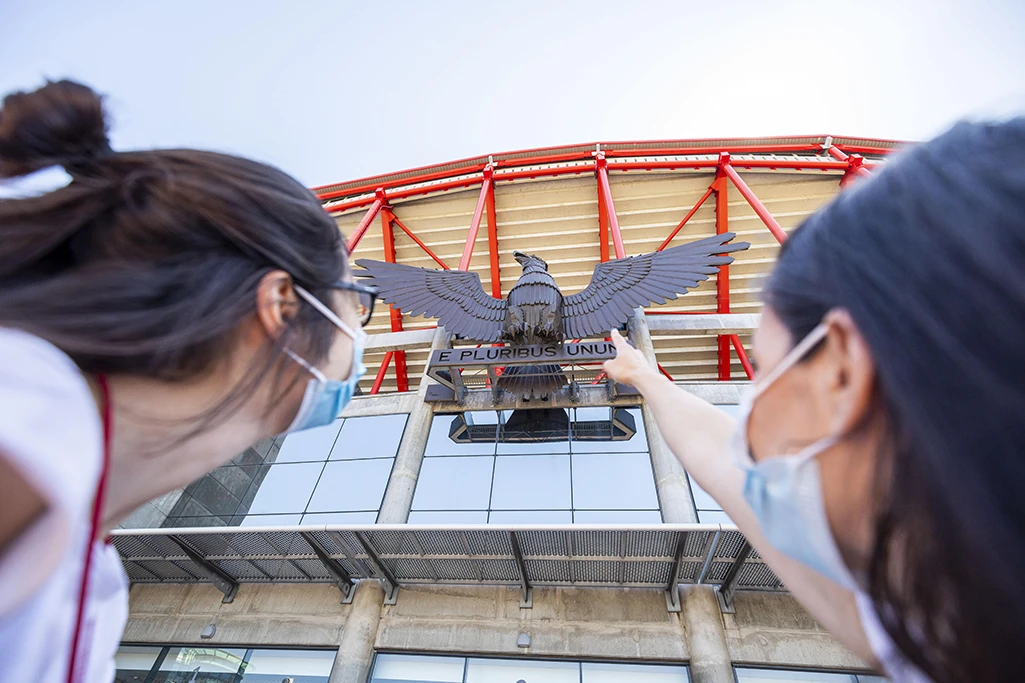
Condition assessment, August 2021
SLB Collection
The cultural meaning and symbolism of this work of art goes beyond its materiality, as it is through its shape, grandeur and imposing nature that this sculpture inspires the Club and its supporters. But it is through the conservation of this materiality that it is possible to continue to contemplate it and maintain its grandiosity. On that account Sport Lisboa e Benfica invests daily in the preservation, valorisation, and dissemination of its historical heritage, because this is the only way to remember and understand what it is like to be and feel Benfica!
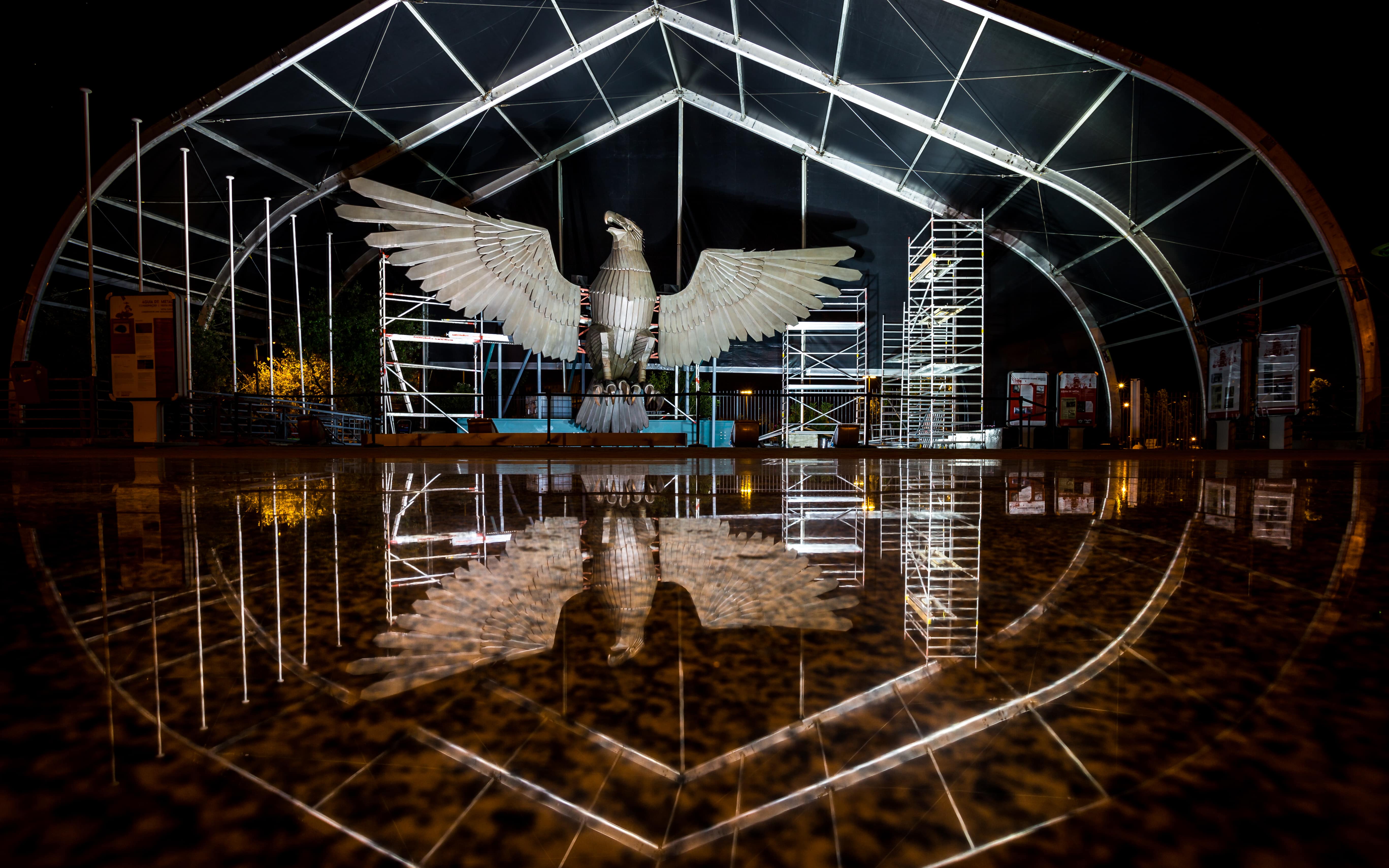
The Metal Eagle during the restoration intervention, August 2016
SLB Collection


